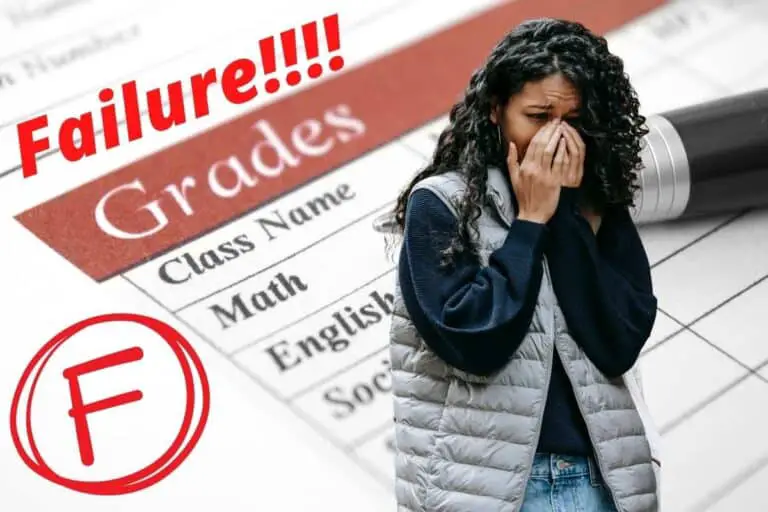How To Decide Which History Class To Take in College?
When you’re enrolled in college and have decided on your major, you’ll still be required to take additional subjects outside of your major. Among the options available, a history course might turn out to be one of the best subjects you’ve taken in your undergraduate years. Since there are a few history classes to choose from, you might find it hard to decide which history class to take in college.
Here’s how to decide which history class to take in college:
- Craft a well-balanced schedule.
- Make sure to meet the Gen-Ed requirements.
- Follow your passion and interest.
- Decide according to their relevance to your future career.
- Consult your advisors.
In the following paragraphs, I’ll elaborate on these tips and touch on relevant topics, such as the most accessible history classes to take, if it’s offered at your college. I’ll also give you a brief idea of how history classes are conducted in college and how they differ from your high school classes.
Tips To Help You Decide Which History Class To Take in College
At the beginning of a semester, you’ll have to face the dilemma of designing your schedules – taking into account the compulsory classes and electives you have to take, and at the same time, giving yourself some free time to spend on fun activities.

As an entering first-year, it’s often mandatory to pick up at least one history course. The truth is, with all the options available on your course catalog, you might find it challenging to decide which history class will be the best fit for you.
For that purpose, here are five tips – distilled from my personal experience and that of my peers and the excellent advice given by professors and college advisors – to help you make the most out of your college life.
1. Craft a Well-Balanced Schedule
Like many of your friends, you’d prefer having Fridays and the weekends as off-days. Thus, you’re tempted to slot in as many classes as possible within the first half of the week.
Having a grossly inaccurate idea of how many classes you can handle in a day is such a rookie mistake and can prove fatal if you don’t address the issue as soon as possible.
Not only are you physically incapable of maintaining the same level of focus for all the classes conducted back to back, but you’ll also suffer from severe burnout. Worst case scenario, you start to resent going to some of the classes, which would maybe lead you to fall behind in terms of progress.
Therefore, you must know your limits when designing your class schedule. The ultimate goal should be to balance studies and play and simultaneously allow yourself some breather in between classes.
2. Make Sure To Meet the Gen-Ed Requirements
Regardless of your major, your college will require that you complete the Gen-Ed (General Education) requirements. History is typically one of the courses you’re required to take, so I’d advise that you clear the subject as early as possible.
The reason for doing so is to leave some space in your future schedule; you’d undoubtedly want to slot in some of the advanced classes from your chosen major later on.
It’s hence vital for you to check the course catalog and read the course summary thoroughly. Among all the History classes offered by your college, choose the one you like best, and at the same time, the one that can help you fulfill your Gen-Ed requirements.
3. Follow Your Passion and Interest
While the tips above can be of general application to courses other than History, this advice is for those who are explicitly thinking of taking up a History course.
You might’ve heard the rumors about a particular History course that’s super popular among the students – it has the highest passing rate and the nicest professor you could ever find. As such, you feel like picking up the class now, just like many of your batchmates.
You’re essentially picking up a course based on what other people think – this is perhaps not the wisest thing you could do. Though the track record of a class can be a helpful deciding factor, at the very least, you shouldn’t pick a class when you have a total absence of interest in the subject matter.
So, follow your passion; it might sound a bit of a cliche, nevertheless a helpful rule of thumb. There’s no point taking a class on Medieval History (for example) only to find yourself losing motivation halfway through, which may then have a significant impact on your grades.
4. Decide According to Their Relevance to Your Future Career
In my second tip, I’ve suggested completing your core classes early on before focusing on major-specific courses. That being said, there’s no harm in picking an introductory class to your major to get a taste of what it’s like, especially when you’re still undecided on your major.
For instance, you might want to fit in a HIS 101 (course name will vary from each college) class if you’re thinking of majoring in History. It’s beneficial to your studies as the course can help you build a “solid foundation in historical research, writing, and critical thinking skills” – immaterial whether you pursue a History major. These are some really practical skills to have.
(Source: Excelsior College: Course Feature: HIS 101: United States History 1)
Apart from that, even if you’re not contemplating a major in History, taking a history class during your degree might turn out to be one of the best decisions you’ve ever made. If you’re an aspiring film producer or a soon-to-be architect, you might find Art History inspiring and idea-stimulating as it gives you access to a broader array of perspectives.
5. Consult Your Advisors
When it comes to choosing a college class, the most reliable information you can find is always from the advisors. They’re the expert in assisting students in picking their courses. Also, they know the ins and outs of a particular class: the professor’s mode of teaching, the class size, volume of assignments, etc.
Remember to make good use of their expertise and experience. Doing so will help you determine if any of the History courses would align with your interest, which will enhance your chances of graduating with a better grade. I’d advise you to meet your academic advisor at least once every semester for this very purpose.
Which History Class Is the Easiest in College?
It’s incredibly arduous to say which history class is the easiest from the outset. We all would have different inclinations about the subject we feel the most comfortable with, as we have different learning styles. The difficulty of the history classes will also greatly vary depending on the college you’re attending.
If you’ve had the opportunity to undergo AP (Advanced Placement) history classes before, you’re likely to be able to cope with most of the more advanced history courses offered by your college.
Due to an absence of context, my best advice would be to obtain as much information as possible from your advisors, seniors, and peers before choosing a history class.
According to Exam Study Expert, the easiest AP college history class is US History. However, this is merely an opinion. The easiest history class in college is likely the one that you’re most interested in. When you’re passionate about what you’re learning, the effort put in hardly seems like work.
(Source: Exam Study Expert: The Easiest & Hardest AP Classes)
What Are College History Classes Like?
History classes at the college level can be very different from what you’ve gone through in high school. They differ in terms of the following aspects:
- The syllabus
- Length of learning time
- Teaching style
- Mode of testing
College history classes are broken down into several units. The pace is much quicker than in high school. There are both mandatory and elective courses often held in large lecture halls. Testing is held at the end of the semester, differing from high school which tests at the end of each unit.
College History Syllabus
At the high school level, the history classes are grouped under the subject of Social Sciences and are spread throughout the span of 4 years.
Particularly, students must pick up U.S. History in their 9th Grade (Freshman year) and World History in their 10th Grade (Sophomore), with some high schools offering European History classes.
(Source: PrepScholar: High School Classes: The Complete List)
However, do note that high schools from different states might conduct their history classes in their distinct order and that there might be some deviation pertaining to their curriculum.
Whereas in college, the syllabus content of history classes can vary depending on your institutions and what major you have chosen.
If you’re a history major, you are expected to undergo a plethora of mandatory and elective courses. They often range from the standard American History and European History to a concentration in a specific period, geographical area, or a theme such as Premodern History, Middle Eastern Studies, Women and Gender Studies, etc.
(Sources: University of Oklahoma: Requirements for the History Major and University of Mary Washington: What courses will I take as a History major?)
Otherwise, as a college student, you’ll take history classes to fulfill your General Education requirement. The Gen-Ed courses catalog will differ depending on colleges but will typically be inclusive of World History and American History.
(Source: Missouri State: General Education Courses)
Length of Learning Time in College History Classes
Do you remember the way you learned U.S. History when you’re a freshman at high school? The syllabus was spread out to be completed within an academic year. Your History teachers are more likely to prepare fun class activities and organize presentations, as they have more time to teach each chapter.
This is totally not the case at the college level. What used to be a year-long course might now require you to complete it in a semester’s time.
Furthermore, as you’re expected to already have a fundamental knowledge of the subject and the ability to research on your own, the learning pace is much quicker in comparison.
It’s not surprising that students who excelled in high school History are now struggling in college History classes. Make sure to put in a hundred percent of your effort, take your time to go through the reading lists and materials if you’ve decided to take a history class.
College History Teaching Style
Compared to a college lecture, your high school classes have a smaller size – they were mostly of less than 40 students at a time. As such, your history teachers were able to give you individualized guidance based on your ability and learning progress.
On the other hand, history classes in college are often conducted in large lecture halls. The class size can range from a few ten to a few hundred (depending on the course you choose to take).
At the college level, you probably shouldn’t expect one-to-one attention from your history professor. Besides, you’ll carry out a lot of note-taking and self-learning based on the lectures and the reading materials provided.
Don’t fret; you can still seek assistance from your professors for the hardships you encounter during the learning process. Be sure to meet them during their office hours, though!
Mode of Testing in College History
One of the things that we resent the most in high school is the frequent tests – very often, we had to sacrifice our weekends to cram for a quiz or an assessment.
You’ll be experiencing none of these at the college level because tests will only be conducted at the end of a semester. The exam anxiety is also greatly alleviated by the assignments you’ve completed for the term, as they’ll be calculated towards your GPA (Grade Point Average).
Advice For Choosing a College History Class
Deciding which history class to take in college can be daunting – but it doesn’t have to be. The following pieces of advice will help you decide which history class is best for you.
- Pick a class that allows you to balance between studies and play.
- Check the Gen-Ed requirements or any other prerequisites you have to fulfill.
- Decide according to your passion and interest.
- Do not overlook the possibility that a particular history class might be helpful to your future career.
- Ask for assistance from your college advisors.
Conclusion
As typical college students, our goals can be summed up as follows: graduate with a degree, equip ourselves with useful life skills and knowledge, and most essentially, enjoy the process as much as possible.
With these aims in mind, choosing classes and designing a perfect schedule is all the more important; and I get it – they’re no easy tasks.







